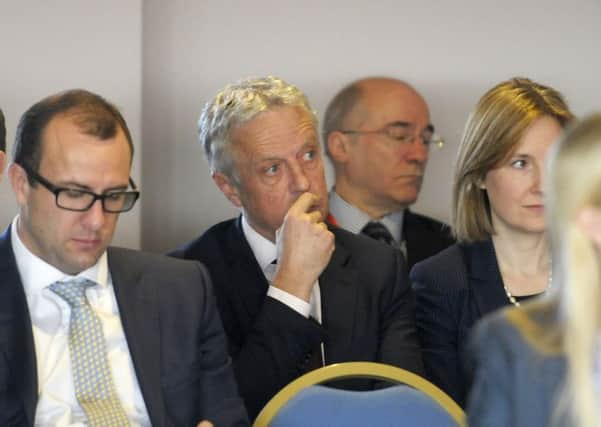Fracking firm's expert says rigs '˜won't harm landscape'


Andrew Tampany was asked for his opinions on the impact that drilling rigs, fencing and other aspects of the proprosed shale gas operations would cause to the rural sites.
Mr Tampany was giving evidence at Blackpool Football Club on the fourth day of a public inquiry into Cuadrilla’s appeal against Lancashire County Council’s refusal of permission to frack at sites in Roseacre Wood, near Elswick, and Preston New Road, Little Plumpton.
Advertisement
Hide AdAdvertisement
Hide AdChartered landscape architect Mr Tampany, appearing on behalf of Cuadrilla, said he accepted that the 53-metre high drilling rigs would cause a temporary visual intrusion.
But he said there would be no permanent harm to the landscape after restoration.
Operations at both sites are expected to cease after about six years.
He told the hearing the first phase would involve installing monitoring equipment, and the second an access road, and fencing .
Advertisement
Hide AdAdvertisement
Hide AdThe 53-metre high drilling rig would be next to arrive, later being replaced by a 36-metre rig.
He stressed that the sites were not permanent, and argued that Preston New Road was not completely rural because of the proximity of the motorway, pylons and other “urban influences”.
Mr Tampany said there would be “neglible impact” on the character of the area in both areas.
Speaking about both sites, he concluded: “None of the proposals will materially affect the key landscape characteristics.”
Advertisement
Hide AdAdvertisement
Hide AdEarlier, a noise expert said drilling for shale gas could be carried out at the two planned sites without any unacceptable noise levels from the rig.
Dr David Hiller said that according to tests the gas exploration company had carried out, and previous experience at other sites, the noise levels from drilling would fall well within acceptable limits.
Dr Hiller was asked to confirm by the inspector Wendy McKay that drilling would take place round the clock.
He said: “The drilling is, yes.
“Fracturing isn’t.”
The hearings will last up to five weeks.
Meanwhile, Barclays branches in Lancaster and four other cities were hit by protests highlighting the social and environmental impacts of the bank’s investments in fracking, coal and tar sands.
Advertisement
Hide AdAdvertisement
Hide AdThe move was part of two days of protest that will see more than 50 actions across the UK.
Sit-ins and occupations of Barclays branches took place in Lancaster, Leeds, Sheffield, London and Oxford.
The two-hour protests caused disruption, forcing Barclays to turn away customers. Twenty students and anti-fracking campaigners occupied the Lancaster University branch and held a teach-in on the dangers of fracking.
The protest was timed to co-incide with the fracking inquiry in Blackpool.
Advertisement
Hide AdAdvertisement
Hide AdA Barclays spokesman said: “We are conscious of the concerns of local communities and other groups over potential environmental and community impacts, which we take seriously and will continue to monitor.”